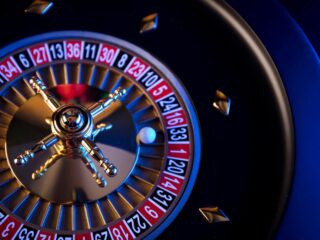
Casino floors buzz with different types of action. Slot machines chime, roulette wheels spin, and blackjack dealers shuffle cards with mechanical precision. But tucked away in a corner – sometimes behind glass doors – you’ll find the poker room. It’s quieter there. More focused. And for good reason.
Making the jump from casino games to poker isn’t just about learning new rules. It’s about completely rewiring how you think about gambling, risk, and what it means to win. Popular resources like PokerScout’s US poker overview highlight just how different the poker world is from traditional casino gaming – it’s a completely separate ecosystem with its own rules, culture, and opportunities.
The Fundamental Shift: Luck vs. Skill
Walk up to any slot machine and your fate is sealed the moment you hit that button. The random number generator has already decided if you’re walking away richer or poorer. Same goes for roulette, craps, or any other traditional casino game – you’re betting against the house, and the house always has a mathematical edge.

This shift changes everything. In casino games, you hope to get lucky. In poker, you work to get better.
Learning to Read People, Not Machines
Casino games are predictable in their unpredictability. A slot machine doesn’t have tells. A roulette wheel doesn’t bluff. But sit down at a poker table and suddenly human psychology becomes your most valuable tool.
That guy who keeps touching his neck when he bets big? He might be nervous about a bluff. The woman who’s been tight all night suddenly pushing chips forward? She probably has a monster hand. These reads take time to develop, but they’re what separate winning players from the rest.
The transition can be jarring for casino players used to immediate results. In poker, you might play perfectly and still lose because someone caught a lucky card. But over hundreds or thousands of hands, skill wins out.
Bankroll Management Gets Real
Most casino players walk in with money they can afford to lose and hope for the ideal. Poker players think differently about money management because they have to. Since skill matters, protecting your bankroll becomes crucial for long-term success.
Professional poker players often follow strict bankroll rules – keeping 20-30 buy-ins for their regular stakes. This seems excessive to someone used to casino games, but it makes sense when you realize that even great players can go through losing streaks that last weeks or months.
A peer-reviewed study shows how consistent performance over time demonstrates the skill element in poker, but this consistency requires proper bankroll management to weather the inevitable ups and downs.
Different Games, Different Strategies
Casino game strategy is mostly mathematical – basic strategy in blackjack, optimal betting in craps. These strategies are fixed and don’t change based on who else is playing.
Poker strategy is fluid. The correct play against tight, conservative players is completely different from the right approach against aggressive maniacs. You’re constantly adjusting based on your opponents, your position, the betting action, and dozens of other factors.
This complexity can overwhelm casino players at first. Where blackjack has a handful of basic strategy decisions, poker has thousands of possible scenarios, each requiring different approaches.
The Mental Game Challenge
Casino games are mentally relaxing for most people. You make simple decisions, get immediate results, and don’t have to think too deeply about strategy. It’s entertainment.
Poker demands mental stamina. You’re processing information constantly – watching opponents, calculating odds, managing your image, controlling emotions. A single session can last 8-12 hours, and staying sharp the entire time is crucial.

The Social Element
Most casino games are solitary experiences. Even at a blackjack table, you’re primarily focused on your own cards and the dealer. Poker is inherently social – you’re interacting with opponents, trying to read them while concealing your own intentions.
Some casino players love this aspect. Others find it exhausting or intimidating. There’s no shame in preferring the anonymity of slots or the straightforward nature of table games.
Bottom Line: Making the Switch
The transition from casino games to poker isn’t for everyone. It requires dedicating time to study, accepting short-term losses while building skills, and completely changing your relationship with gambling.
But for those who make the jump successfully, poker offers something casino games can’t: the genuine possibility of long-term profits through skill development. Instead of hoping to get lucky, you’re working to get better. And that makes all the difference.
Whether you stick with casino games or explore poker, understanding these differences helps you make informed decisions about where to spend your gambling time and money.


